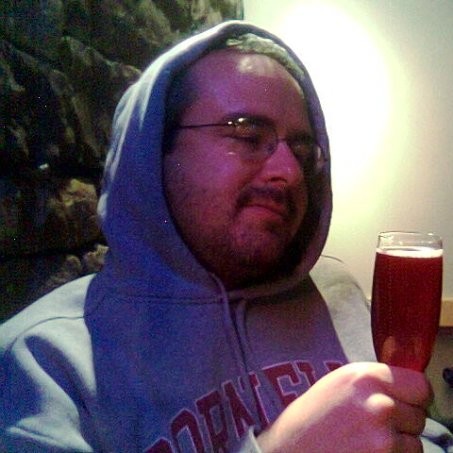I remember my first forays into question-asking at the CS colloquium in my first semester. John Riedl told me to have a question ready for every single talk and, if no one else has one, ask it, no matter how good you think it is. This was pretty scary for someone with a music ed undergrad from Ohio State and a fine, but professionally oriented, CS masters from James Madison. So I felt ill-prepared for deep thoughts on talks about phase transitions in the difficulty of 3-SAT problems or statistics questions for Bob Kraut.
But I made the questions, and I asked the questions, and as those who have seen me at conferences can attest, I continue to do so. I’m glad John made me do it; here’s why*.
First, paying enough attention to a talk to make a good question means that I’m actively engaging with the ideas and with the speaker. This, in turn, means I’m not checking e-mail, working on my own slides, making mildly amusing comments on Facebook, or other things that we regularly criticize our students for in the classroom that take us away from the moment and the speaker.
Second, thinking hard about topics, especially ones that aren’t in my comfort zone, can lead to new ideas. I try to go into talks (and papers) with a “what’s in this for me” attitude–what can I learn or use from this talk? When I do that, almost any talk or topic is interesting, even if I have to do translation work to connect topic X to my own interests**.
Finally, questions are love in academia. I’ve had talks when I’ve gotten two questions, and although I try to tell myself it’s because I’m full of blinding insight, that statement is full of something else. Asking a question says “I cared enough about your work to think hard about it.” We can all use a little more love.***
So, spread the love. Pay some attention and ask some questions. It’s part of being in the community.
A couple of quick notes for new question askers. First, don’t make the question about you. It’s okay to ask hard questions^, and asking good questions can help you be more visible^^, but don’t ask a question just to demonstrate that you’re smart. We’re all smart. Second, don’t make the question about you. Some questions are thinly disguised opinion pieces and/or self-promotion, and we don’t need any more of those. Third, don’t make the question about you. If you’re taking the ideas into your domain, help bring them back out for the speaker and the audience so they make sense.
On question style, be more like an interviewer than a lawyer. Lawyers often ask yes-no questions, leading questions, and questions where they already know the answer. Usually, those lead to boring answers. So do questions where the answer is likely to be about details that are in the paper but that (probably correctly) got left out of the talk for space^^^.
Instead, shoot for more open-ended questions that give the speaker room and context to breathe and be creative. I don’t have a lot of canned strategies for this, but folks with some humanities/critical/philosophical background often ask nice questions by bringing the topic up an abstraction level. For example, at a talk on how recommender interfaces change opinions, someone asked whether this was a good or bad thing, which was an awesome question that got at the heart of what recommender systems do. It can be fun, done with care, to call attention to an aspect of the topic that’s not focused on in the talk. In the HCI/CSCW world, asking about social implications or compelling applications of technology/systems papers is a common model, as is asking about technical or design implications of experimental or observational studies. Asking about how the ideas fit nearby, related domains or ideas can lead to nice chats. Finally, asking about unexpected things that happened during the study can lead to interesting insights.
Here’s hoping I ask fewer questions at CSCW next week because you pass this on to students and other folks who carry the torch. Thanks for reading and let everyone know if you have strategies (or alternate opinions) around good question-asking.
—
* A few other folks who have written about this, with extra detail and somewhat different takes, for folks who want to think more about question-asking goals and strategies:
- http://www.ethomaz.com/2012/10/01/asking-good-questions-at-conferences/
- http://blog.1degreebio.org/?bid=60
- http://scientopia.org/blogs/science-professor/tag/asking-questions-at-a-talk/
- http://sliscon.files.wordpress.com/2011/03/conference-asking-questions-resource.pdf
** I really like dodging outside of my topic areas. Although there’s value in and pressure to be deep and a little narrow in academia, there’s also value in being broad and establishing intellectual trade routes.
*** Questions can lead to longer-term conversations later. My first encounter with Jofish Kaye and Janet Vertisi was asking a question at their CHI 2006 talk on personal archiving. Little did I know I’d be hanging out with them at Cornell shortly thereafter, and having gone, thought about their topic, and asked the question paved the way for natural interaction later.
^ Best done gently. I remember someone basically calling someone else a fraud at a machine learning conference once, which put a damper on things.
^^ Especially if you announce your name and institution, which should be a conference norm. At most talks most people won’t know most people, and it’s good for community to announce.
^^^ Methodology questions often have this flavor. If you have a deeper question that depends on method info, go for it, but conversations about big ideas are usually more fun than those about p-values, Krippendorph’s alphas, or algorithm parameters.
